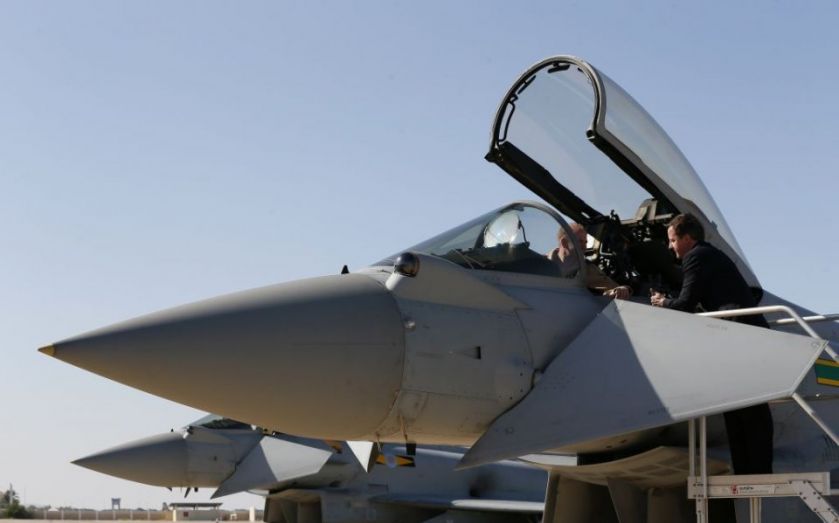Defence company shares rise – but should you buy?

Shares in companies involved in defence leapt this week after the government announced plans to spend an extra £12bn on the “diverse” threats facing the UK. Shares in the FTSE 100’s BAE Systems, Babcock and Rolls-Royce all rose. Analysts are recommending defence stocks as a buy – but should they be in your portfolio?
BIG SPENDERS
The announcement was part of the government’s Strategic Defence and Security Review (SDSR), and includes plans for new aircraft, replacement ballistic missile submarines and new drones. It means the total budget for defence will climb to £178bn over the next decade with the additional cash, fulfilling a Nato commitment to spend two per cent of GDP on the military.
For investors, it’s a complicated picture. For starters, there is no dedicated sector of listed UK defence companies for investors to pick from. Firms involved in security tend to have other business interests too. Meggitt is a manufacturer for the energy industry as well as defence. Senior is an engineer for areas including aerospace and security, while Babcock too is involved in engineering and support services for everything from telecommunications to defence.
So shares in these companies are affected by a range of factors, not just the ebb and flow of the government’s budget. That said, orders to purchase weapons and equipment tend to be large and multi-year projects, so there is a degree of stability in a defence business, once it has secured orders. “There is always going to be a certain amount of defence spending so these stocks do have a ‘steady eddy’ backdrop,” says Adrian Lowcock of Axa Wealth.
BAE SYSTEMS
However, the largest supplier to the Ministry of Defence, BAE Systems, is being widely tipped by analysts. This is chiefly because the SDSR details plans to buy eight BAE warships and extend the life of Eurofighter Typhoon jets already owned. “BAE Systems is our preferred pick to benefit from the SDSR given the extension to the government’s commitment to the Typhoon fighter jet – manufactured and maintained by BAE,” says Simon French of Panmure.
Deteriorating geopolitics limit the potential for defence spending cuts, says Rami Myerson of Investec. “Defence budgets in BAE’s home markets are improving,” he says, adding that government rhetoric has suggested it may favour UK suppliers – such as BAE – more in future.
But crucially, this bounce back in fortunes comes after a difficult time for the defence sector. Government spending was cut after the financial crisis, both in the UK and abroad. Just two weeks ago BAE announced job cuts due to a lack of orders for its Eurofighter, but analysts hope new warship orders will offset this.
Rolls-Royce has issued five profit warnings in under two years and its share price has halved. It’s a mixed bag for the defence-related companies right now. The £178bn figure seems large, but where it will be spent is the real question facing investors.